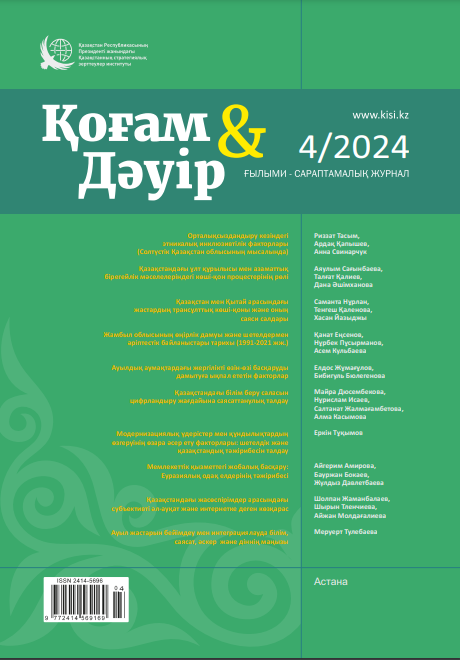Abstract
Abstract: The article examines the impact of Internet use on the subjective well-being of adolescents in Kazakhstan. This issue is an under-researched topic, and the age of this social group represents a unique period characterized by special needs and rights. The article focuses on a study that assesses the correlation between the level of Internet addiction and the level of subjective well-being; the study is the first in Kazakhstan to conduct an in-depth analysis of the relationship between Internet use and subjective well-being.
The data used in this study is based on the results of a sociological survey conducted in 2021. The survey was conducted online via Google Forms, and 3,321 teenagers from all regions of Kazakhstan took part.
The complex nature of the relationship between online activities and subjective well-being has been revealed. Excessive time spent online may reduce well-being somewhat, and the nature of the virtual experience may increase life satisfaction for some people


